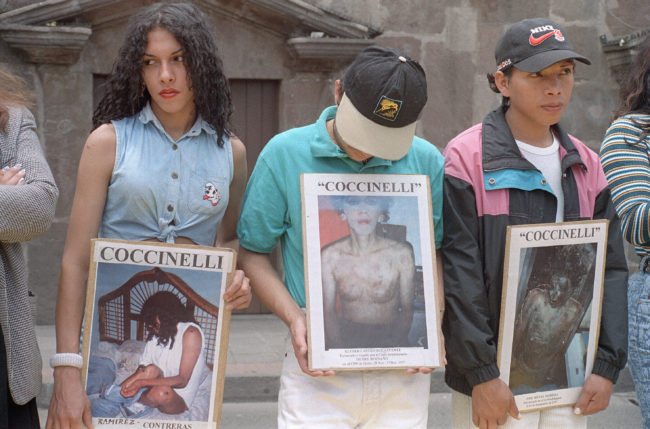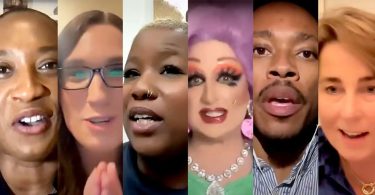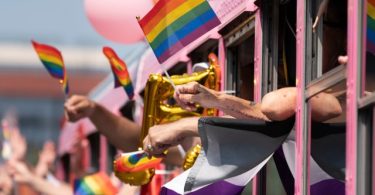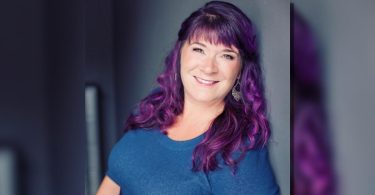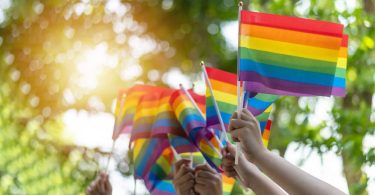LGBTQ+ people are being forced into “gay cure” rehab clinics and subjected to rape and beatings in Ecuador.
Campaigners in the country have called on the government to investigate into over 100 clinics in which they believe human rights violations are being carried out against LGBTQ people.
Ecuadoran LGBTQ people demonstrate in front of the government palace in Quito against human rights abuses of gays in 1998.
(Photo by GUILLERMO LEGARIA/AFP/Getty Images)
An estimated 200 clinics are operating in the country.
Four people have come forward so far to tell of the horrifying abuse they were subjected to between 2014 and 2016 under the guise of “rehab”.
The victims say that they were beaten, placed in solitary confinement, chained to their beds for days at a time, force-fed concoctions of medicines and raped as a “corrective” measure by fellow patients and staff.
Some were also forced to wear makeup and high heels.
Ane Barragan, a coordinator at Causana Foundation, who have campaigned against gay “cure” therapy for over a decade, said that the treatment LGBTQ people were put through in an attempt to “convert” them was some of the worst they had known.
“A morbid creativity for torture exists,” Barragan told the Thomas Reuters Foundation.
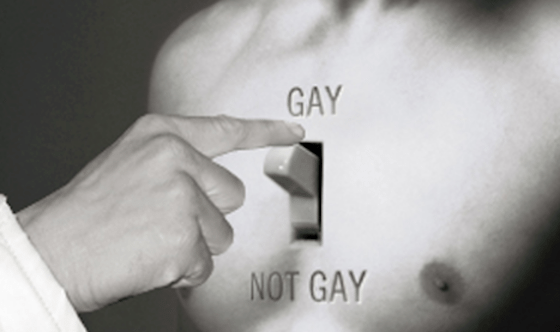
They added that it was an issue because the clinics in which the “conversion therapy” was happening were not be regulated or monitored.
It is believed that most of the victims are being admitted to the clinics by their parents under the guise that they are entering drug or alcohol rehab clinics.
Treatment costs $1,500 a month and they are usually held against their will for at least three months.
Cayetana Salao, of the LGBTQ rights group Taller de Comunicacion Mujer, said: “Corrective therapy, in mostly private and clandestine alcohol and drug addiction clinics, continues in Ecuador. It’s a reality.”
They added that of the six cases investigated by the state since 2012, no one has been found guilty or punished for the alleged violations.
“We call on the judiciary to move these cases forward and hold those people responsible to account,” Salao added.
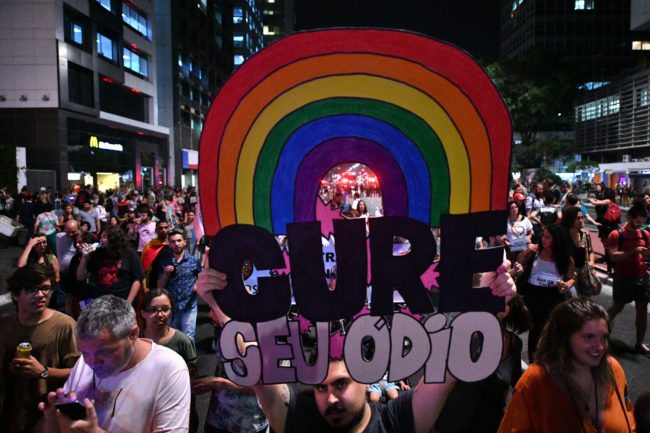 (Photo: NELSON ALMEIDA/AFP/Getty Images)
(Photo: NELSON ALMEIDA/AFP/Getty Images)
Ecuador is one of three countries, alongside Malta and Brazil, which have banned the practice.
Homosexuality was legalised in 1997, and same-sex civil unions have been legal for over a decade.
Numerous raids were carried out on the “gay cure” clinics between 2012 and 2015 under the guidance of former health minister Carina Vance, who is openly gay.
The crackdown saw over 116 clinics raided and over 100 clinics shut down as a result.
However, within months the clinics had re-opened under different names.
Vance explained that the clinics “have a lot of power” and it is a “lucrative” business with lots of “economic interests”.
“There are families using these so-called services and this has to do with a prevalent, a very homophobic … a sexist society,” Vance said. “Cultural change is very difficult to produce.”
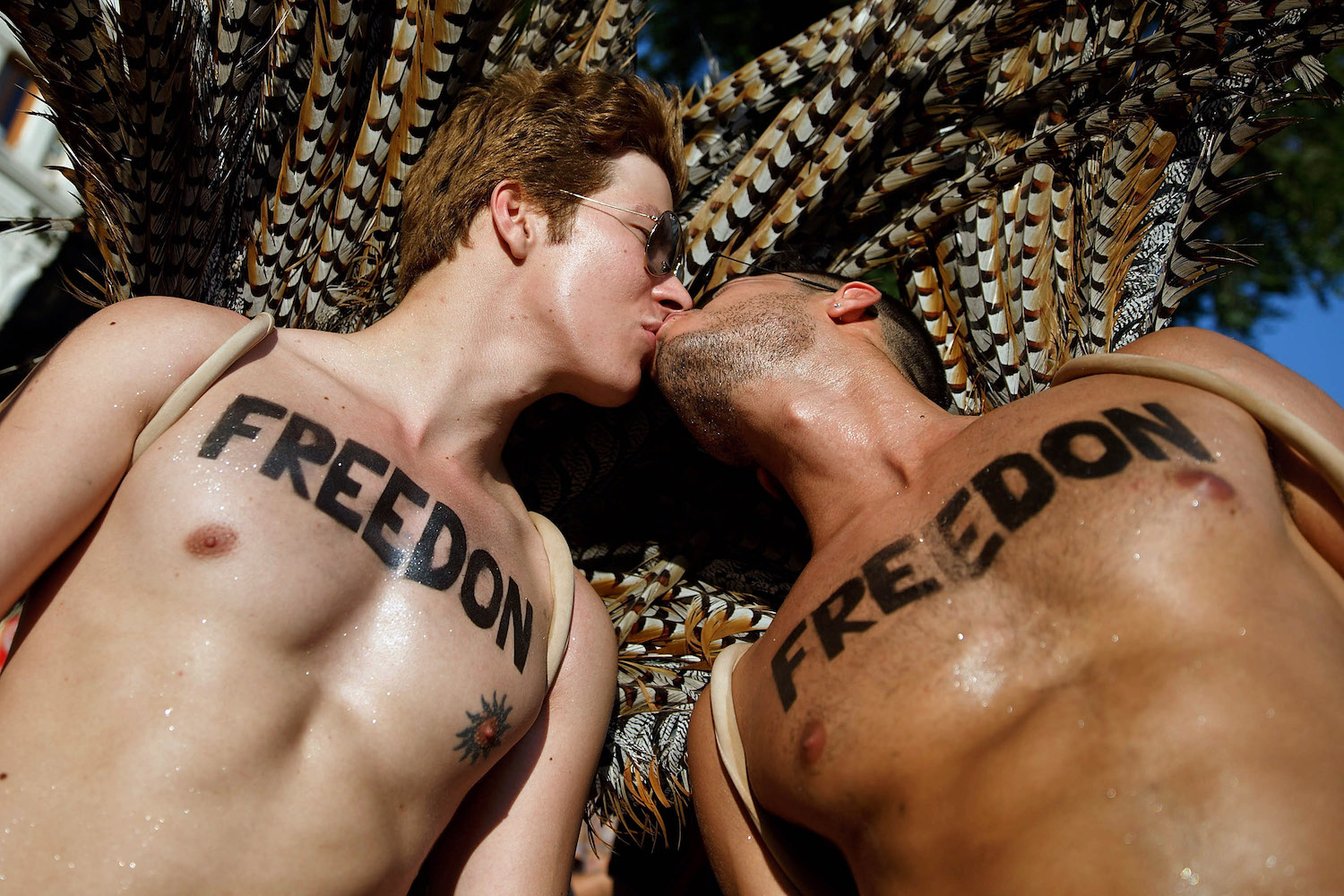
Maria Jose Espin, head of technical management at the health ministry’s regulatory agency, ACESS, said that these “establishments do not exist”.
“There are no de-homosexualization clinics. They shouldn’t exist,” she said.
In 2013, 22-year-old Zulema Constante, a psychology student from Guayaquil revealed that her own family arranged for her abduction after finding out she was gay.
She was sent to a “conversion” clinic 10 hours away from her home.
She said: “I’d told my family two months before that I was a lesbian and they’d been threatening me ever since.
“I was full of fear. I knew the principal ‘therapy’ at these clinics was rape.
“They told me I was bad, I was hurting my family, I was being manipulated by my girlfriend, that God made woman for men.
“I knew the same would happen to me if I didn’t comply.
“So I did everything they asked me, everything I could to survive until I could escape or someone saved me,” she said.
Ms Constante said she has not spoken to her family since.
“The first time I saw my father, at my work, I was terrified, I ran away and hid. They’ve never said sorry, never shown any regret. I’m still scared and I don’t trust them,” she added.

